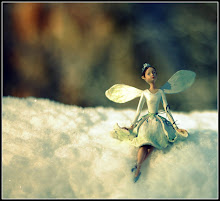Tiny, when it is in the grip of jealousy.
Huge, when you believe in it you can find the heaven.
It is interesting that Peter Kingsley claims that the whole universe resides in our hearts. Mencius said that “The entire universe, and everything in the world, resides within one self; and returning to yourself is the highest good”. (My poor translation might be pardoned ,for according to a famous Japanese schloar(よしかわこうじろう), “Poem is what has been lost in the transtaltion.”) Other major Confucianists in Song and Ming Dynasty also claimed that “the universe is my mind, and my mind is the universe”. (such as Lu Xiang-shan, and Wang Yang-ming.)
However, after the western framework of science was brought into China, the understanding of the universe changed. In the modern history of China, radical critiques of Chinese medicine, together with its cosmological grounding, emerged on a large scale. We started to go the hospital to accept surgery and transplantation of organs, which was totally unimaginable under the context of traditional Chinese medicine. Besides, in the process of modernization, especially in the May Fourth Movement, many schloars standed up to take a critical view toward the traditional Chinese culture, some of which even suggested Chinese students not read traditional Chinese books, but only read foreign books. In them there are many influential schloars and writers such as Lu Xun, who was compared to Nietzsche, in the sense that they are both “trapped in the construction of a modernity which is fundamentally problematic.” [1]
But broadly speaking the faith in the proposition that the entire universe is in everyone’s heart is still very popular among ordinary Chinese people, so is the theory the balance of Ying and Yang

The cross cultural comparison is fascinating.
ReplyDeleteI agree with Dr. Bowery, fascinating. Please continue to tell us more of ancient Chinese philosophy. I believe that it is important to find what unifies us as opposed to looking for what divides us. Thanks for sharing.
ReplyDeleteLily,
ReplyDeleteSome very interesting reflections on traditional Chinese views of human nature, bodily states, and ethics. One connection between east and west might be the connection between ethics and psycho-somatic states. Many ethicists in the West today think that emotions, and their ethical importance, are directly linked to our bodily states.
An even stronger connection might be the western tradition of Galenic medicine. Here's a Wikipedia quotation that illustrates the similarity:
For Galenic medicine, "the human body was filled with four basic substances, called four humors, which are in balance when a person is healthy. All diseases and disabilities resulted from an excess or deficit of one of these four humors. The four humors were identified as black bile, yellow bile, phlegm, and blood. Greeks and Romans, and the later Muslim and Western European medical establishments that adopted and adapted classical medical philosophy, believed that each of these humors would wax and wane in the body, depending on diet and activity. When a patient was suffering from a surplus or imbalance of one fluid, then his or her personality and physical health would be affected. This theory was closely related to the theory of the four elements: earth, fire, water and air; earth predominantly present in the black bile, fire in the yellow bile, water in the phlegm, and all four elements present in the blood."
Good work!